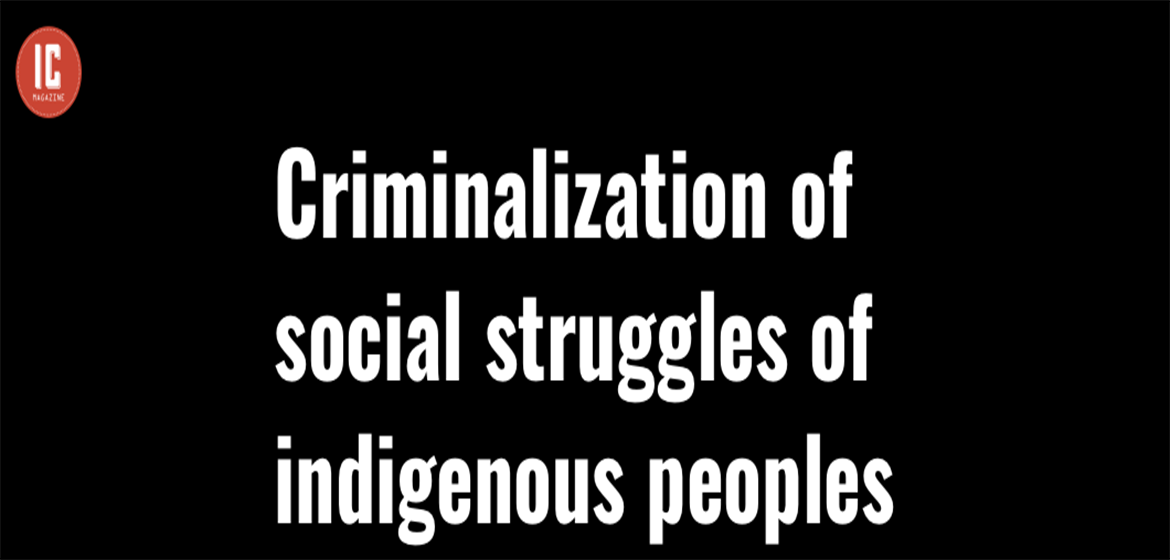by John Ahni Schertow
Turning legitimate protest into a crime is one of the preferred strategies of power groups when trying to contain social struggles and diminish responses to their demands. This strategy is most effective when it has the support of mass media, which lend themselves to discrediting protestors and undermining the support of public opinion. In recent years, indigenous struggles in particular have been the target of such tactics, a situation which was harshly denounced during the Continental Meeting of Indigenous Peoples and Nationalities of Abya Yala, which took place in Bolivia in October 2006:
“We are living in times of militarization and criminalization of social movements. Today as indigenous peoples we are submitted to a new rationale of the so-called democratic or neo-fascist security projects. If we do not struggle firmly united against this, our peoples will be only one step away from complete physical extermination as a result of the elimination of our territory, knowledge, identity and culture in general. From the perspective of these manifestations of colonialism, we are a hindrance preventing them from continuing to illicitly enrich themselves and to determine the future of nation states in accordance with what is most politically convenient to them”. (From the outcomes of the Working Group on Strategic Alliances at the Meeting).
Blanca Chancoso, Kichwa-Ecuadorian, recalls that the criminalization of indigenous struggles is not new, but that since the time of colonialization it has reproduced itself in various ways across the continent when people have tried to raise their voice in defence of their land, territories and of the rights of their peoples.
From the perspective of Father Antonio Bonanomi, indigenous peoples in Colombia – as elsewhere – are living through a very difficult time. One of the main factors in this is “the imperialist system which dominates politics in Colombia. Essentially indigenous peoples are seen as a hindrance. As a result of their culture, their defence of their territory and their love of the land, they are blocking efforts by multinationals to take control of the water and the forests, and of all natural resources. Indigenous culture is inherently anti-capitalist and anti-neoliberal and for this reason, capitalism and neoliberalism, which today are trying to dominate the world – and they dominate it, not only through politics but also with arms and laws – are enemies of the indigenous peoples and they consider them their enemies. From there stems the repression, displacement and laws against indigenous peoples.”
Referring specifically to the Nasa People of the Valley of Cauca, Bonanomi indicates that “throughout their history, the Nasa People have undergone great repression and persecution, but never as forcefully as it is today. Because it’s not only armed repression, it is often grounded in law. Essentially what is illegal is now being made legal and while what the State does has an appearance of being legal it is continuously violating the rights of indigenous peoples.”
Source:
Related to SDG 10: Reduced inequalities



